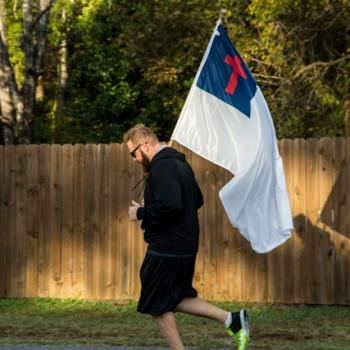In spite of the fact the Samaritans had just rejected Jesus' visitation ([Luke] 9:51-56), Jesus nevertheless presents the Samaritan as fulfilling the law, loving his neighbor, and embodying divine hospitality. If the Samaritans were those of the other religion to the Jews of the first century, what implications does this parable hold regarding those in other faiths for Christians in the twenty-first century?
The point to keep sight of is that a balanced form of orthopathy, right passions and emotions related to the Christian faith, finds its roots in love for neighbor as an important biblical teaching. It is worth noting that this central biblical teaching is found only once in the Old Testament, in Leviticus 19:18. Related to this is the command to exercise care and hospitality for the alien and stranger. This is much more prevalent in the biblical tradition. One example of this is found in Leviticus 19:34, which says "The foreigner residing among you must be treated as your native-born. Love them as yourself, for you were foreigners in Egypt. I am the Lord your God." This oft-repeated teaching of the Old Testament is also echoed in the New Testament, from the teachings of Jesus discussed above, to the example of his life and ministry as an itinerant preacher relying upon the hospitality of others, to Paul in Romans 12:13 mentioning the need to "extend hospitality to strangers," to the author of Hebrews discussing the same (13:1-2).
At this point we should note the symbiotic relationship between orthopathy, orthodoxy, and orthopraxy. They are intimately connected, and we should remember that we have not ignored orthopathy in our zeal for orthodoxy. Rather, we have drawn upon a negative, hostile, and confrontational form of orthopathy, and out of this has come an expression of orthodoxy and orthopraxy that has been interpreted as less than compassionate by those outside our faith.
But this need not be the form of orthopathy that we utilize. Evangelicals can reflect on the scriptural call for love of neighbor, and for hospitality to the alien and stranger, and this can then can provide the basis for a reformulation of the form of orthopathy from which our orthodoxy and orthopraxy springs. Related to this, my friend and colleague Terry Muck who has worked for many years in interreligious engagement wrote about definitions and types of dialogue between Evangelicals and other religions, and one particular description was most striking. Muck described interreligious dialogue as "an expression of a fundamental emotion or attitude toward people who believe differently on the most important aspects of life." I resonate strongly with this definition, and believe that it should not only be understood as a definition or type of interreligious dialogue, but instead should be the form of orthopathy that shapes our approach to orthodoxy and orthopraxy as well.
In our increasingly pluralized world we rub shoulders with people from diverse perspectives, cultures, religions, and ideologies. They are likely familiar with our zeal for our truth claims, but surely we can work harder to ensure that they are as familiar with a new form of orthopathy, a fundamental attitude and emotion shaped by the love for neighbor and stranger that we encounter on life's journey. Will 21st-century Evangelicals be willing to craft a new, more generous orthopathy?




